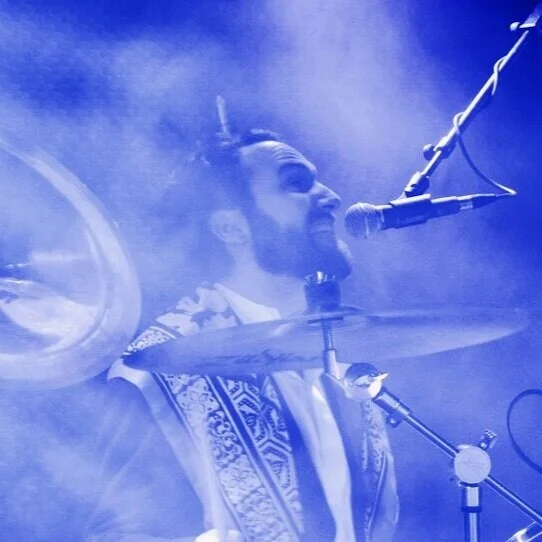Unity Has Many Voices
It started with seven tracks of body percussion (and one saucepan lid), performed by a friend in Edinburgh and dropped in the cloud, to be passed to the next in line. Next, rhythm guitar and a vocal provided by a songwriter from Southend-on-sea. A harmonium and string parts layered on top by a Norfolk primary school teacher (that's me!), bass guitar from another friend back in Essex, piano and castanets courtesy of a K-Pop craftsman in South London, a Doctor of Political Science's mariachi-style trumpet calls and finally orchestral percussion scored by a guitarist living in Gothenburg, Sweden. Seven friends separated by distance and lockdown restrictions, creating a new piece of music without ever being in the same room.
It has been a fascinating experiment, born of a desire to stay connected to people and activities I love. It has also reminded me that the act of making music together, of unifying the separate elements to form a cohesive whole, requires care, thoughtful consideration and surrendering of ego. Each contributing member lends the project their unique voice, with the music itself determining the words spoken. Jazz musicians follow 'the changes', classical musicians perform their part. But both create, in the moment of performance, a contribution to the whole that no other performer could have made.
The same holds true in our schools. Most have spent a least some time shaping their 'ethos', 'vision' or 'mission statement'. The best, in my humble opinion, let this be the beacon around which staff collect, contribute and create. Many with less confidence attempt to control the performance itself, through endless pro formae, strict dress codes, prescribed teaching styles and, in doing so, reduce the outcome to a compressed, mechanical unison, with none of the richness and depth that comes from letting individuals bring themselves into the venture. Like those sensitive musical collaborators asking the question "what does this track need from me?", the sensitive teacher is encouraged to ask "what can I contribute to this vision?". And with egos checked, the response is determined by that vision, that ethos, that mission. All members of the school community (and I include its pupils, here) are united, yet with permission to maintain an identity of their own. 'This is OUR school' and also 'MY school'.
Different schools, like different pieces of music, have a unique 'feel'. Composers/school leaders have a crucial role in writing the score but cannot perform every part. If we want to create schools that truly unite communities, we need to trust individuals to respond to our vision with authenticity, individuality and sensitivity.
Being united does not mean surrendering our own opinions, disregarding our prior experiences nor following a singular blueprint. We can "sing from the same hymn sheet" in our own, unique voice. And the song/school we create from this is richer for it.


